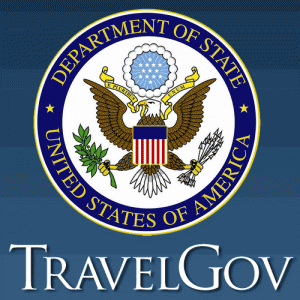Travel News
Is Turkey Dangerous? Global Alerts Warn against Turkey Travel
As the instability in Turkey continues, governments across the world have started to take notice.
Originally planned as a protest against the destruction of Gezi Park in Istanbul, the last green space in the city center, the movement has grown to a demonstration of anti-government dissent throughout the country, including the capital of Ankara.
Planning a trip to Turkey? It’s right to be concerned. But just how concerned?
 First, the U.S. Embassy in Turkey issued an “Emergency Message for US citizens” that informed citizens of public protest occurring at varying times and with little notice. The message noted the danger of even being near such altercations, “the Turkish National Police are clashing with protesters in some locations, and there have been numerous reports of injuries.
First, the U.S. Embassy in Turkey issued an “Emergency Message for US citizens” that informed citizens of public protest occurring at varying times and with little notice. The message noted the danger of even being near such altercations, “the Turkish National Police are clashing with protesters in some locations, and there have been numerous reports of injuries.
Then, on June 4, the the U.S. State Department issued a travel alert that was set to expired on June 5 but remains live on the website. As to advice, the State Deparment “strongly urge U.S. citizens to avoid demonstrations and large gatherings. Even demonstrations intended to be peaceful can turn confrontational and escalate into violence.”
Additionally, the State Department tweeted that in addition to avoiding protests and public demonstrations. Citizens should follow the @USEmbassyTurkey for up-to-the minute information. It’s a great idea, but remember data signals have been jammed in protest areas. And while free Wi-Fi is being offered by area restaurants, businesses and hotels, it’s not a guarantee.
Peter advises common sense and caution for travel to Turkey:
Well, it IS safe to travel to Turkey right now to Antalya, Bodrum, Ephsesus, Dalaman and throughout most of Istanbul….Just like avoiding Tahrir Square in Cairo, it didn’t mean to stay away from Egypt. Exercise your own personal/political GPS, some common sense and you’ll be just fine.
In addition to common sense, the key is to be informed. Start with the State Department, and then check what other governments have to say about the location. In some cases they may have access to information that our government doesn’t.
So when it comes to Turkey, what are they saying? The UK’s Foreign and Commonwealth Office (FCO), advises against all but essential travel to part of turkey. Like the U.S. State Department advises British nationals to avoid all demonstrations. The warning goes into a bit more depth
Further demonstrations remain possible in cities across Turkey. Police have used tear gas and water cannon to disperse protestors from Taksim Square and the surrounding area, including Istiklal Street, in Istanbul. We advise British nationals to avoid all demonstrations and to follow the advice of the police or local authorities. Two major pro government rallies are due to take place in Ankara and Istanbul on 15 and 16 June respectively.
The Foreign and Commonwealth Office advise against all travel to the Turkish towns of Akḉakale and Ceylanpinar and against all but essential travel to areas within 10km of Turkey’s border with Syria .The FCO advise against all but essential travel to the provinces of Hakkari, Sirnak, Siirt and Tunceli. You should be especially vigilant when travelling in other provinces in south eastern Turkey and in areas in close proximity to the Syrian border.
The UK warning does offer some perspective noting, “over 2,500,000 British nationals visit Turkey every year. Most visits are trouble-free.”
 Canada has not exercised a nationwide advisory or a specific surrounding the protest. The country does have an advisory recommending citizens exercise, “a high degree of caution.” The current warning states, “There is no nationwide advisory in effect for Turkey. However, you should exercise a high degree of caution due to crime, the threat of terrorist attacks, and ongoing demonstrations throughout the country.”
Canada has not exercised a nationwide advisory or a specific surrounding the protest. The country does have an advisory recommending citizens exercise, “a high degree of caution.” The current warning states, “There is no nationwide advisory in effect for Turkey. However, you should exercise a high degree of caution due to crime, the threat of terrorist attacks, and ongoing demonstrations throughout the country.”
An additional warning is in place for the the border with Syria, “Foreign Affairs and International Trade Canada advises against non-essential travel to the border with Syria as the security situation remains unpredictable. Consult the Security tab for more information.”
Normally reviewing the US, the UK and Canada travel alerts offer a broad perspective, but in the case of the Turkish Spring, its war-torn neighbor Syria has also issued an advisory.
The Syrian Foreign Ministry has advised, “against travel to Turkey for the time being for their own safety, because of the deteriorating security situation in several Turkish cities…and the violence of Erdogan’s government against peaceful protesters”.
The Syrian alert might be more politics than safety. Syria has passed some blame on Turkish Prime Minister Tayyip Erdogan for fueling Syria’s civil war; Turkey is currently hosting 370,000 refuges who have fled Syria. Syrian Information Minister Omran Zoabi even suggested that Erdogan should resign if unable to resolve his countries protests without violence.
For more information on travel safety, check out Peter’s Travel Detective Blog: Is It Safe to Travel to Egypt?
By Lily J. Kosner for PeterGreenberg.com
Feature Image Credit: Wikimedia, credit Mstyslav Chernov












